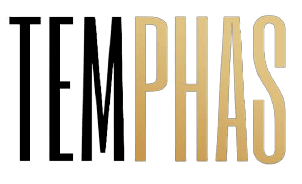Elon Musk, Tesla CEO buys Twitter for $44bn

Elon Musk, a billionaire entrepreneur, has agreed to buy Twitter Inc. for $44 billion, using one of the world’s largest leveraged buyout deals to take private a 16-year-old social networking platform that has become a focal point of public debate and a flashpoint in the debate over online free speech.
Investors will receive $54.20 for each Twitter share they own, according to a statement released by the business on Monday. The price is 38% higher than the stock’s close on April 1, the last business day before Musk revealed a large interest in the company, causing a stock boom. The announcement caused a stop in Twitter shares.
Musk, who has more than 83 million followers on Twitter, began amassing a 9 percent stake in the company in January. By March, he had increased his criticism of Twitter, claiming that its algorithms are prejudiced and that its feeds are clogged with artificial rubbish posts. He also claimed that bots were inflating Twitter’s user growth. He offered to take Twitter private on April 14 after rejecting an invitation to join the company’s board of directors, saying he’d make the platform a stronghold of free speech and dropping other hints about the changes he’d make as owner.
The suggestions ranged from the practical — such as allowing users to edit tweets and preventing bots from spreading — to the bizarre, such as converting the company’s San Francisco headquarters into a homeless shelter.
“Free speech is the bedrock of a functioning democracy, and Twitter is the digital town square where matters vital to the future of humanity are debated,” Musk said in a statement released on Monday. “Twitter has tremendous potential – I look forward to working with the company and the community of users to unlock it.”
The board of directors unanimously authorized the purchase, which is anticipated to close later this year. According to the release, Musk has secured $25.5 billion in debt and margin loan financing and will provide around $21 billion in equity to fund the purchase.
Going private is a significant shift for a firm that began as a messaging service for exchanging status updates with pals but swiftly evolved into a platform for users to broadcast brief posts of 140 characters or less to a large audience. Twitter became popular among politicians, celebrities, and journalists, and it joined social media heavyweights Facebook and YouTube as a standard bearer of Web 2.0, a new, more interactive way of utilizing the internet.
To ward off unwelcome bidders, Twitter enacted a shareholder rights plan on April 15 – a tactic known as a poison pill. The plan, which can be exercised if a party acquires 15% of the company’s stock without prior approval, aims to ensure that anyone gaining control of the social media company through open market accumulation pays all shareholders an appropriate control premium, according to the company’s announcement.
Last week, though, a watershed moment occurred when Tesla Inc. CEO Elon Musk put together a funding deal that comprised 12 banks, led by Morgan Stanley. Musk spoke with Twitter officials just days after announcing the proposal, as the firm became increasingly favorable to a transaction, a person familiar with the situation told Bloomberg News on Sunday.
